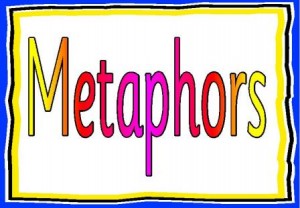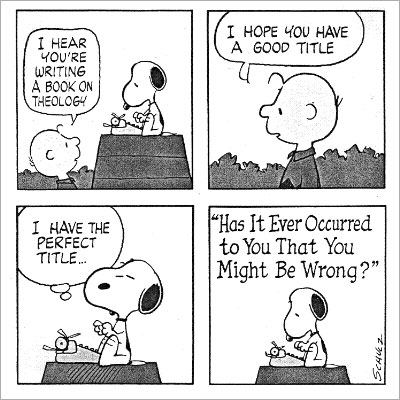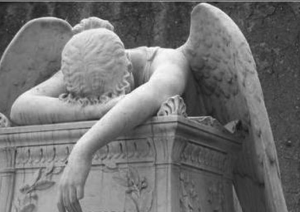From Luke’s Gospel:
Jesus said, “Do you think that I have come to bring peace to the earth? No, I tell you, but rather division! From now on, five in one household will be divided, three against two and two against three.”
(From the Daily Office Lectionary – Luke 12:51-52 (NRSV) – November 3, 2014)
 This isn’t what we want or expect to hear from “the Prince of Peace,” but here it is! Jesus is not going to let us “make nice” and “all get along.” He insists that we acknowledge and confront the reality of interpersonal conflict, that we admit that even good news can bring division.
This isn’t what we want or expect to hear from “the Prince of Peace,” but here it is! Jesus is not going to let us “make nice” and “all get along.” He insists that we acknowledge and confront the reality of interpersonal conflict, that we admit that even good news can bring division.
Tomorrow America will go through its regular spasm of national political division and pretend that it is otherwise, that what we do on the first Tuesday of November is a demonstration of unity when we all know it is very much the opposite. In these times of what seems to be ever increasing polarization, families are divided over politics, “father against son and son against father, mother against daughter and daughter against mother, mother-in-law against her daughter-in-law and daughter-in-law against mother-in-law.” (v. 53) We make a joke of it and try to laugh it off, but we all know families (perhaps even our own) where there is discord and disagreement over electoral politics.
Here’s an exercise in frustration: using Google (or whatever your favorite search engine may be) look for the words “election day prayer” on the internet. There are many prayers and many of them begin with lovely words asking God’s blessing upon us as “faithful citizens,” as “brothers and sisters,” but then in amongst the glowing words are the red-flags . . . “cries of children unborn,” “evils of abortion,” “sanctity of marriage,” “Christian nation” on the one side, “reproductive rights,” “marriage equality,” “nation of many cultures” on the other. Prayers ostensibly seeking God’s blessing on national unity phrased in the very terms of division and discord.
I may be prejudiced, but I can think of no better prayer for an election than that found in the Episcopal Church’s Book of Common Prayer
Almighty God, to whom we must account for all our powers and privileges: Guide the people of the United States (or of this community) in the election of officials and representatives; that, by faithful administration and wise laws, the rights of all may be protected and our nation be enabled to fulfill your purposes; through Jesus Christ our Lord. Amen. (BCP 1979, page 822)
“Five in one household will be divided, three against two and two against three.” We are divided by politics and when the votes are counted one side or the other will “win,” at least until the next election. Whichever it may be, let us indeed pray that “the rights of all may be protected.” Amen!
====================
A request to my readers: I’m trying to build the readership of this blog and I’d very much appreciate your help in doing so. If you find something here that is of value, please share it with others. If you are on Facebook, “like” the posts on your page so others can see them. If you are following me on Twitter, please “retweet” the notices of these meditations. If you have a blog of your own, please include mine in your links (a favor I will gladly reciprocate). Many thanks!
====================
Father Funston is the rector of St. Paul’s Episcopal Church, Medina, Ohio.
 I often wonder what (if any) thought went into the construction of various lectionaries, particularly the Daily Office lectionary of the Episcopal Church. Are the sometimes strange, sometimes enlightening, often puzzling juxtapositions of texts planned or simply fortuitous?
I often wonder what (if any) thought went into the construction of various lectionaries, particularly the Daily Office lectionary of the Episcopal Church. Are the sometimes strange, sometimes enlightening, often puzzling juxtapositions of texts planned or simply fortuitous?  Project Evaluation Review Technique – “PERT” . . . . I learned to do PERT charts in business school. PERT charts diagram the flow of a project through its various tasks and processes, assigning some as “essential” tasks which must be done in a particular order, later tasks depending on earlier tasks to have been accomplished by particular persons, while other tasks “float,” they can be done any time by any team member.
Project Evaluation Review Technique – “PERT” . . . . I learned to do PERT charts in business school. PERT charts diagram the flow of a project through its various tasks and processes, assigning some as “essential” tasks which must be done in a particular order, later tasks depending on earlier tasks to have been accomplished by particular persons, while other tasks “float,” they can be done any time by any team member.

 Until our twenty-fifth wedding anniversary my wife had never traveled overseas. She’d been to Canada, but that was it for foreign travel for her. For our anniversary we went to Ireland, something we’d talked about doing for many years. In fact, it had been my plan for our honeymoon, but that (obviously) didn’t happen.
Until our twenty-fifth wedding anniversary my wife had never traveled overseas. She’d been to Canada, but that was it for foreign travel for her. For our anniversary we went to Ireland, something we’d talked about doing for many years. In fact, it had been my plan for our honeymoon, but that (obviously) didn’t happen.  Great! Here it is, the single phrase in Paul’s writing, the single preposition the translation of which can radically change one’s understanding of the doctrine of justification by faith. But . . . I’m not going to address that doctrine this morning; I’m more interested right now in ambiguity.
Great! Here it is, the single phrase in Paul’s writing, the single preposition the translation of which can radically change one’s understanding of the doctrine of justification by faith. But . . . I’m not going to address that doctrine this morning; I’m more interested right now in ambiguity. Until I undertook a little bit of Greek language study, I always thought Jesus’ pronouncements of woe were angry condemnations, predictions of doom, and certainly they can be that. On the other hand, they can be understood as something very different. The Greek word translated as “woe” is ouai which can also (and perhaps more properly) be translated as “alas.” The word is onomatopoeic, representing a deep sigh of sorrow or resignation. Perhaps Jesus is not so much condemning as mourning.
Until I undertook a little bit of Greek language study, I always thought Jesus’ pronouncements of woe were angry condemnations, predictions of doom, and certainly they can be that. On the other hand, they can be understood as something very different. The Greek word translated as “woe” is ouai which can also (and perhaps more properly) be translated as “alas.” The word is onomatopoeic, representing a deep sigh of sorrow or resignation. Perhaps Jesus is not so much condemning as mourning. I have to admit that on first reading this, I had no idea what Qoheleth is saying here! Not the slightest.
I have to admit that on first reading this, I had no idea what Qoheleth is saying here! Not the slightest. 

